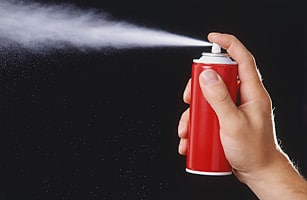The widespread use of Chlorofluorocarbons (CFCs) throughout a fifty-year stretch in the middle of the 20th century was one of the biggest environmental mistakes ever. As we came to learn the hard way, CFCs wreak environmental havoc by weakening the ozone layer, and some can persist in the atmosphere for over a century, making their legacy a long-lived mistake too.
The Montreal Protocol of 1987 was instrumental in phasing out CFC use, and is considered one of the most successful multilateral environmental agreements ever. The Protocol has phased out nearly 97% of 100 ozone-depleting chemicals, many of which contribute to global warming. The Protocol also prevented over 200 billion metric tonnes of global warming gases from entering the atmosphere – an astonishing five years’ worth of total global emissions. Nothing to sneeze at. The Montreal Protocol’s pollution reduction targets are mandatory, universally accepted and readily measurable.
World Meteorological Organization (WMO) and United Nations Environment Programme (UNEP) scientists recently confirmed that the Montreal Protocol was a highly-successful solution – the ozone layer has recovered from CFC-induced damage, and the Protocol “provided substantial co-benefits by reducing climate change.”
With energy legislation shelved in the U.S. and little hope for a global climate change agreement this year, some policy experts are arguing that, rather than reinventing the wheel, perhaps a solution is right in front of us.
Policy experts are considering an expansion to the ozone treaty to phase out the production and use of hydrofluorcarbons or HFCs. The chemicals are used primarily as refrigerants in air conditioners manufactured in China and India, yet the appliances are found in every corner of the globe. And some HFCs have thousands of times the global warming potential of CO2.
The Environmental Protection Agency estimates that adopting the Montreal Protocol expansion could eliminate the equivalent of 88 billion metric tons of carbon dioxide by 2050, and slow global warming by a decade.
Durwood Zaelke, president of the Institute for Governance and Sustainable Development argues that the elimination of HFCs under the Montreal Protocol may well be the best hope we’ve got for climate protection in the next few years. President Obama, in a post-election news conference, painted a bleak picture for meaningful climate action in the next two years, citing Congressional deadlock. The U.S. is in favour of the proposed expansion, and no Congressional approval would be needed.
Subscribe to our newsletter
Stay up to date with DeSmog news and alerts






